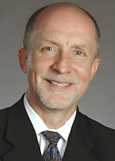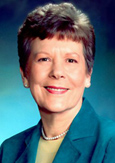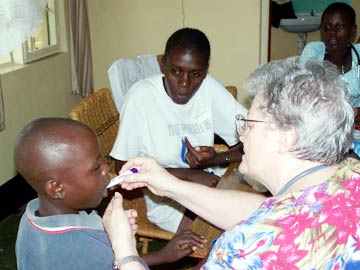Posted: 5/11/07
Texas Baptist Forum
God, by any other name
The Baptist Standard is no longer taking a stance for Christ and is backing this left-wing anti-Christian terrorist, Charles Kimball (March 5). Why else would they give him and his rhetoric the attention they have? I am the Sunday school director for a Baptist church in Texas, but I will be moving towards independent. I will no longer support the Baptist General Convention of Texas or the Southern Baptist Convention. It is apparent the church is being attacked not only by Muslims and our alleged own government but from within also.
| • Jump to online-only letters below |
|
| Letters are welcomed. Send them to marvknox@baptiststandard.com; 250 words maximum. |

“If Christians could stop arguing about things Jesus didn’t mention or value, and if we could turn down our institutional ambitions and pride, we would see that our singular contribution to these difficult times is community. Not just niceness and smiles, but radically open and transformative community. Jesus said, ‘Be one,’ not ‘be right.’ He said, ‘Love one another,’ not ‘judge one another.’ Our … world is desperate for authentic community.”
Tom Ehrich
Writer, church consultant and Episcopal priest (RNS)
“When Jesus said we should love our neighbors as ourselves, he meant we should probably try every means available to stop those neighbors from being killed.”
Bob Edgar
General secretary of the National Council of Churches, addressing Berkshire Hathaway stockholders on “socially responsible investing” (Ekklesia/RNS)
“Many evangelicals are boarding a new train. It runs along tracks defined by the broad demands of their faith, not by some party’s political agenda.”
E.J. Dionne
Washington Post columnist, on how some American evangelicals are in the midst of a “New Reformation” that separates them from partisan politics (RNS) |
I will do my part to expose your efforts to fuel this intended means for a one-world religion, which is exactly what Kimball’s message is. Read your Bible to find that there will be no peace between Muslim and Christian/Jews until the return of Christ. You are either for Christ or against him. Our God is a jealous god who shares his glory with no other. What an example you at the Baptist Standard set. But for me and my house, we will serve the Lord.
Someone needs to see to it that Kimball is deported to the Middle East along with every so-called Baptist that supports his ideology. The Bible tells us people like him are coming. Look up!
Tim Engledow
Anahuac
While many of our Baptist community prefer to think the name “Allah” that Muslims use for God cannot be reconciled with the God of “Abraham, Isaac, Jacob” or the eternal Triune Godhead, a knowledge of Semitic languages argues against them.
The Arabic “Allah” is related to the older Canaanite term “Elat,” the Hebrew words of our Old Testament “El” (singular) and “Elohim” (plural), and the Aramaic that Jesus likely spoke daily, “Alaha.” Etymologically, the names all share an unmistakable common origin.
However, just as in the English word “god,” the same name may describe more than one spiritual being at a time. The Hebrew of the Old Testament has no problem referring to the God of Israel as “Elohim” and then turning around and using the exact word for the multiple gods of the Canaanites. Character, not title, marks the difference.
Perhaps we Baptists might learn to evaluate the religions and practices of our neighbors on more profound levels than merely the grammatical.
David Maltsberger
Boerne
Scott Presnall’s reasoning (April 30) is absurd. His statement that Baptist, Mormon and Muslim viewpoints all carry the same validity is amazingly naive.
The thing that separates these various viewpoints is not my opinion but the word of God. The issue is not unique interpretations of Scripture, but what do you do with Jesus, who himself said: “I am the way and the truth and the life. No one comes to the Father except through me.” Mormonism has an unbiblical view of Jesus’ work on the cross, and Islam teaches that Jesus was simply a prophet. Presnall’s view is equivalent to moral relativism. All roads don’t lead to the same destination, and there is an absolute truth!
Jimmy Carter was wrong when he said that Mormonism is equivalent to Christianity! I am saddened by the fact that our executive director would align himself and our convention with a group that will seek to water down the gospel.
Randy Brown
Lufkin
Path to salvation
David King’s letter (April 30) was insightful. But I either misread or misunderstood his remarks regarding the similarites of the Christian/Muslim view of God. He wrote: “He is a moral God, so those who ‘do good’ are assured a place in heaven and those who disobey are assured of punishment in hell.” Later in his letter, while contrasting Christians and Muslims, he mentions “a personal relationship with sinful people through the atonement of Jesus, the forgiveness of sins.”
Nowhere does the Scripture teach one is saved by a “do good” effort, but only “by grace through faith” is one justified through the atonement of Jesus.
Hopefully, since King served the Lord for 30 years as a missionary, I either misread or misunderstood the “do good” statement. His insights are excellent, but the “do good” statement could be very confusing.
Bill Sword
Garland
David King is incorrect. Those who have accepted Jesus as Savior and Lord and believe in him as God’s Son and ask Jesus to come into their heart and live and be their Lord and be guided through life by the Holy Spirit are assured a place in heaven.
There are a lot of “good” people in the world, but that does not mean they have been saved and made Jesus Lord of their lives, though they might think so.
And those who do not receive and believe in Jesus as Savior and Lord are assured of punishment in hell.
Joann Gordon
Dallas
Legality of immigration
In “How can churches legally minister to illegal immigrants?” (April 30), Krista Gregory, a consultant with Baptist Immigration Services Network, said, “A church can give undocumented residents food and clothes and can allow them to be full members of the congregation.”
My question is: What constitutes a “full member” of a Baptist church?
I thought you had to be a baptized believer to be a full member. If that’s the case, then how can someone living in an illegal (sinful) way be a baptized believer? I know we are all sinners and only through the grace of God and blood of Christ are we saved. But to be born again means to repent of your sins (crimes) and not engage in these sins (crimes). So how can one doing this become a “full” member of a church? What if the person was an adulterer and continued in his/her sin? What if they were a thief and continued stealing? What if they were a child molester and continued molesting children? Would all these still be allowed “full” membership?
How far has our denomination descended into the worldly ways that we would allow this? May God forgive us for giving in to the ways of the world.
Mick Tahaney
Port Arthur
Straight thoughts on illegal immigrants: I don’t know anyone in America today whose ancestors were not immigrants—Irish, German, English, etc. Even the American Indians immigrated.
So it’s not about legal immigrants, but illegal. Surely the Scripture offers some thoughts and help:
• Render unto Caesar what is Caesar’s (Luke 20:25). We must obey the laws of the land, not pick and choose. Unless we want anarchy.
• The Good Samaritan took care of the man, paid for care (Luke 10:33). Didn’t take him to the nearest ER and dump him. Medical care and schooling all cost money—to encourage otherwise is wrong. It will kill our schools and hospitals.
• The worker deserves his wages (Luke 10:7). Yes, it will cost more to get certain jobs done if we do away with slave wages and living conditions. As Christians, can we do less?
David S. Moore
Olney
Evangelical identity
A boy rode his mule from Low Gap to Jasper, Ark., one Saturday afternoon. A policeman noticed the boy standing on the street and asked him, “Do you have any I.D.?” The boy replied, “About what?”
The word “evangelical” is now being used as an identification of our belief. One who maintains the Bible is the only rule of faith. One who teaches or preaches the gospel (Good News) of Jesus Christ. One who leads others to be converted to Christianity.
Surveys among professing Christians—those who claim to be born-again—reveal beliefs in church, baptism, heaven, hell, the Bible, salvation and many others. Now surveys separate the beliefs of evangelical Christians and nonevangelical Christians. If there ever was an oxymoron statement, this is it! You don’t say a person is a 10-foot-tall midget. Most church members are not evangelistic because most church members are happy being members of the church they never attend.
A Christian is one who believes in the gospel of Jesus Christ with a living faith that conforms their life to the image of Christ day by day. Jesus came to “seek and save the lost” (Luke 19:10). That’s evangelical! “Follow Me, and I will make you fishers of men” (Matthew 4:19). That’s evangelical! “Go make disciples” (Matthew 28:19). That’s evangelical!
To say that a Christian may be nonevangelical is foreign to the teachings of Christ, but when a Christian is identified by his evangelical lifestyle, it is a great compliment. “Do you have any I.D.?”
Wayne Nix
Mount Pleasant
What do you think? Send letters to Editor Marv Knox by mail: P.O. Box 660267, Dallas 75266-0267; or by e-mail: marvknox@baptiststandard.com.
News of religion, faith, missions, Bible study and Christian ministry among Baptist churches, in Texas, the BGCT, the nation and around the world.




